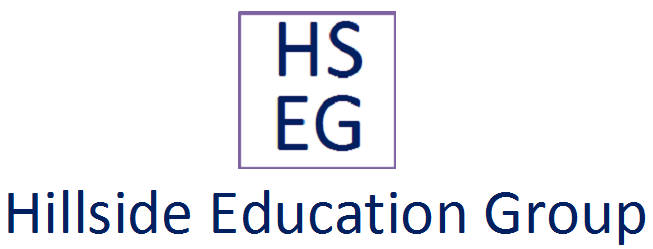Leadership
Leadership is the action and skill through which an individual or organization guides a group of individuals or organizations. Here, as a leader, only human beings will be targeted. A leader belongs to a small group and someone leads a large group. Some even become leaders of the country. Students live in groups in school and college. That group is also led by one person. Some do not belong to any group and form and lead a group by attracting others to the place where they live. In the children's play area we can see that one of the children is working as a team leader and the other children are listening and obeying him/her! It can be accepted that the sign of becoming a leader starts appearing from a young age. Sometimes it may appear later.
Leadership is also associated with emotion. The desires and needs of a group of people tend to be of the same nature. They move a person forward to guide them in the right direction. All members believe in him/her. They see the leader as their problem solver. Through him/her, they present their representation where necessary.
Qualities of leadership
Clear goals
Public relations
The leader maintains a balanced relationship with all stakeholders. Leaders from time to time meet people directly, organize group discussions and express their commitment to solve problems by listening to everyone.
Good listener
Leaders need to be able to listen to others. If he doesn't listen to others well, he won't listen to their suggestions or problems. The question arises as to whether the people are represented or not and they lose faith in the leader. Therefore, a leader should be able to listen carefully to others and think deeply about the problem and solve it.
Inspiring and empathetic
Leaders should always be optimistic and inspiring. Leaders need to have the ability to make people optimistic, to encourage those who are discouraged, to empathize with the victims, and to seek treatment. The leader should be good speaker with goods words.
Gentle and friendly
The leader's speech should always be humble. A good speaker can win the hearts of others. No one can be considered a leader who speaks harshly.
Transparent and honest
The leader must be honest and transparent and can communicate clearly what he is doing.
Confident and committed
The leader must be able to move forward confidently with a commitment to implement and achieve his/her and the group's decisions and plans.
Ability to make decisions
The ability to make decisions is one of the most important qualities of a leader. Planning, strategy and policy cannot be made without making a decision. Leaders have to make immediate and long-term decisions. How can he/she move his car forward if he/she drives without starting the engine?
Accountability
The leader must take responsibilities for the good or bad deeds done by himself/herself or any member of the organization. Similarly, when the government, shareholders, creditors, employees and workers also ask for an answer, the leader has to answer.
Empowerment
A Leader should always look energetic. He/she should be full of enthusiasm and vigor. No one would believe if he/she sat down with a depressed face. Planning, speech, behavior, body language should always be strong, should be able to provide energy to others.
Creative, innovative and flexible
Creativity, innovation and flexibility are the three qualities that any leader needs. Because being creative makes decision making and problem solving faster. Similarly, innovation helps leaders to embrace change and innovate in working style and action plan. And, flexibility is also associated with creativity and innovation. It reduces stiffness.
The importance of leadership
Assistance in goal setting
Leadership skills provide expertise in setting goals for an organization or group with assessing the strategies, tactics, work schedule, timetable, resources, measures, etc. required to achieve the goals.
To organize tasks
Once an individual or organization has set its goals, the resources, measures, and actions it needs to achieve them must be systematically organized. It helps in achieving the goal. This is what a successful leader can do.
Group representation and collaboration
Leadership unites scattered resources, manpower, ideas, knowledge, abilities, and desires. It builds the group and the leadership represents it. In addition, it represents empathy, emphasizes collaboration and helps achieve organizational objectives by integrating resources.
To provide guidelines
Just as the queen of bees leads her flock to a certain destination, so does leadership provide direction to an organization or group!
Increase in Encouragement, confidence and employees morale
Encouragement is the greatest strength. Without this power, no one can move forward. Institutions are also made up of individuals. These people need to be discouraged and motivated from time to time. It also helps to boost the morale of the employees. Lack of these creates obstacles in achieving the objectives of the organization.
Benefit from change
Society is changing. By using strong leadership capacity, maximum benefits can be provided to the organization from the changing environment. Although changes pose new challenges, the leadership must be able to take advantage of them while remaining supportive.
To fulfill social responsibility
The organization should think about sustainable development rather than development. The responsibility towards the society should not be forgotten while achieving the objectives of the organization. Economic achievement must be taken forward in balance with society and the environment. Such a balance can only be maintained by good and competent leader.



















Fantastic Article. Thank You Sir.
ReplyDeleteThank You Sir. Hope you publish more educational article like this.
ReplyDeleteI am glad to find the unique article. Thank You Sir.
ReplyDeleteVery Helpful.
ReplyDeleteThank You Sir.
ReplyDeleteVery Helpful .....Hope to get more article like this in upcoming days......Best wishes Kapil Sir
ReplyDeleteThank you for your note.
ReplyDelete